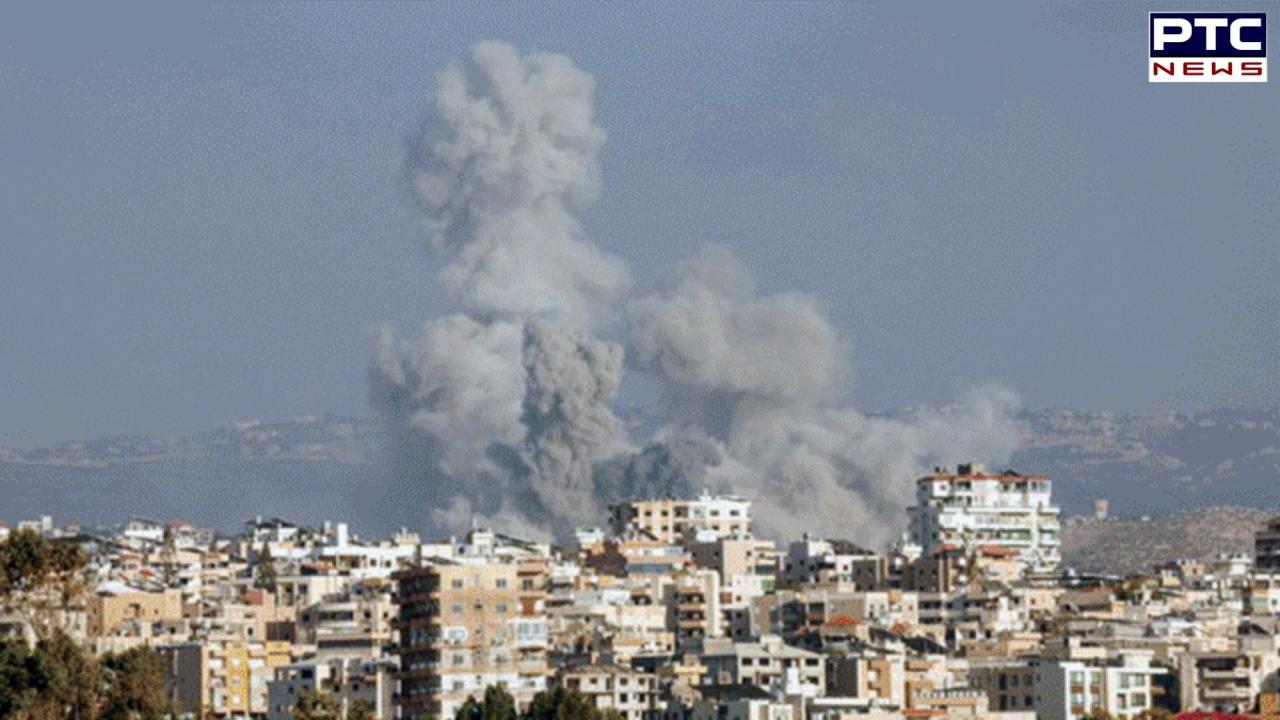

Israeli airstrikes in Lebanon claim 492 lives; Hezbollah retaliates with 200 rocket attacks
PTC News Desk: Israeli airstrikes targeting Hezbollah positions in Lebanon on Monday resulted in the deaths of 492 people, making it the deadliest day in the ongoing Israel-Hezbollah conflict since the 2006 war. The strikes, which have heightened fears of a broader regional conflict, were met with a retaliatory barrage of nearly 200 rockets from Hezbollah, targeting northern Israel.
Overnight, Hezbollah, an Iran-backed militant group, launched nearly 200 rockets at various Israeli cities, including Haifa, Afula, and Nazareth. The group claimed that the rocket attacks were directed at Israeli military bases and airfields. Air raid sirens blared across northern Israel, and the Iron Dome missile defense system intercepted most of the incoming rockets. No casualties or significant damage were reported on the Israeli side.
This exchange of strikes marks a significant escalation in cross-border hostilities, raising concerns of a wider war breaking out in the region. The conflict between Israel and Hezbollah, already simmering for nearly a year, has intensified following the start of the Gaza conflict on October 7 of last year. Diplomatic efforts from multiple nations calling for restraint have so far failed to quell the violence.
The violence has triggered a mass exodus, with tens of thousands of civilians fleeing towns and villages in southern Lebanon, seeking refuge in the capital, Beirut. The Israeli military reported that it had struck 1,600 Hezbollah targets in its largest bombardment of Lebanese territory in nearly a year.
Lebanon’s health ministry confirmed that 492 people, including many women and children, were killed in the strikes, and 1,645 others were injured. The death toll makes it the deadliest single day of violence Lebanon has seen since the end of the Lebanese Civil War in 1990, surpassing even the worst days of the 2006 Israel-Hezbollah conflict.
Israeli Prime Minister Benjamin Netanyahu declared that the Israeli military was reshaping the "security balance" along the northern border with Lebanon. Israel’s Defense Forces (IDF) chief of staff, Lt. Gen. Herzi Halevi, added that the military was preparing for “the next phases” of its operations in Lebanon, hinting at further escalation in the days ahead.
In addition to the broader airstrikes, the IDF reportedly conducted a targeted strike near Beirut, aimed at senior Hezbollah leader Ali Karaki, who commands the group's southern front. However, Hezbollah later confirmed that Karaki survived the attack unscathed.
The international community has expressed grave concern over the rapidly deteriorating situation. U.S. President Joe Biden stated that he had been briefed on the escalating conflict and affirmed his administration's efforts to de-escalate the situation. The U.S. State Department reiterated its commitment to defending its allies in the Middle East, while the Pentagon announced plans to deploy additional troops to the region to bolster security.
On the diplomatic front, France has called for an emergency meeting of the United Nations Security Council, with Foreign Minister Jean-Noël Barrot informing the UN General Assembly of the need for immediate intervention. Egypt urged the UN and international powers to intervene to prevent further escalation, while Turkey warned that Israel's actions could push the entire region into chaos.
Iranian President Masoud Pezeshkian accused Israel of laying "traps" to provoke a broader Middle Eastern conflict. In contrast, Israeli Foreign Minister Israel Katz held Hezbollah responsible for the high civilian death toll, accusing the group of using civilians as human shields.
The Israeli military had previously issued warnings to civilians in Beirut and other regions of Lebanon, advising them to evacuate areas near Hezbollah strongholds. These warnings followed explosions that destroyed hundreds of Hezbollah’s communications devices, including pagers and walkie-talkies, across Lebanon last week.
The conflict has also led to widespread travel disruptions. EgyptAir announced the cancellation of all flights to and from Beirut starting Tuesday, citing the “current events unfolding in Lebanon.” The airline stated that services would resume once the situation stabilizes. Jordan’s national carrier also suspended all flights to Lebanon until further notice.
As tensions between Israel and Hezbollah continue to rise, the risk of an all-out war looms, with the possibility of drawing in more countries from the region. Diplomatic efforts to de-escalate the violence have yet to yield results, leaving the region on edge as both sides brace for further confrontations.
Also Read: PM Modi hugs rapper Hanumankind and Khalasi star Aditya Gadhvi at 'Modi and US' event
- With inputs from agencies
